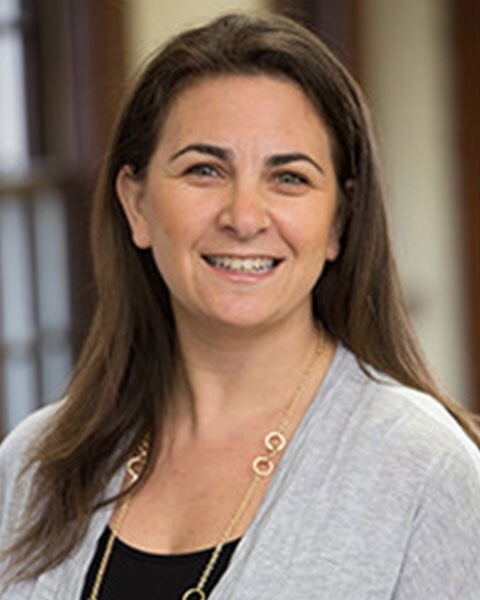
Recorded CGR #3: DBT Clinical Grand Round: Exploring the Four Modes of Treatment Through a Live Demonstration (2023 CONVENTION RECORDING)
-
Register
- Non-member - $35
- Member - $25
- Student - $15

Maureen Zalewski, Ph.D.
Associate Professor
University of Oregon
Eugene, Oregon

Alison M. Yaeger, Psy.D.
Program Director, Associate Director of Training
McClean Hospital, Harvard Medical School
Cambridge, Massachusetts

Aditi Vijay, Ph.D.
Assistant Professor
Kean University
Union, New Jersey

Vibh Forsythe Cox, Ph.D.
Recorded on Saturday, November 18, 2023 at the 57th Annual ABCT Convention in Seattle, WA
1.5 CE Credits Awarded
$15 Student ABCT Members / $25 ABCT Members / $35 Non-Members
All prices listed in US currency
Abstract:
ISITDBT will commemorate the 30th anniversary of the original DBT text (Linehan, 1993; Cognitive-Behavioral Treatment of Borderline Personality Disorder) with an invited Clinical Grand Rounds at ABCT 2023's annual convention in Seattle, Washington, the birthplace of DBT. Through an extended clinical demonstration, attendees will have the opportunity to witness the four modes of DBT treatment—Individual Therapy, Skills Group Training, Phone Coaching, and Consultation Team—come alive on stage. Through a single case vignette, a common and challenging clinical scenario will be presented to illustrate the effectiveness of DBT. The live demonstration will open with a client attending an individual therapy session; during this session, the audience will witness the client become emotionally dysregulated in response to a comment made by the therapist. The demonstration will unfold with role-plays of each of the four treatment modes; ultimately revealing how each mode plays a crucial and distinctive role in repairing the client-therapist relationship. Whether novices or experts in DBT, participants will observe the intricate ways these distinct modes of treatment work together to support patients and improve treatment outcomes.
Outline:
I. Introduction to Four Modes of Treatment in DBT; brief description of how the role play will unfold through a single extended case vignette
II. Role play of rupture between therapist and client during individual treatment session (audience will observe client becoming increasingly emotionally dysregulated in session)
III. Role play of client in group, revealing to skills group leaders they are angry with their therapist and want to quit treatment (audience will watch group leaders reinforce effectiveness skills with client)
IV. Role play of consultation team, in which therapist reveals difficulty of individual session. Therapist reveals they are anxious that next phone coaching session will lead to greater client dysregulation (audience will observe how consultation team helps therapist cope ahead with potential phone coaching call)
V. Client will call therapist to receive phone coaching (audience will observe how client using skills reinforced by skills leaders as well as how consultation team helped therapist be effective on coaching call)
VI. Summary. Narrator will describe and summarize the role plays, highlighting specifically the distinct and interconnected role of the four modes of treatment
Learning Objectives:
At the end of this workshop, the learner will be able to:
1. Describe the four modes of DBT: Individual, Skills group training, phone coaching, and consultation team.
2. Explain the function of each of the four modes and how each mode plays an important role in the overall treatment approach.
3. Describe how consultation team supports the individual therapist to provide effective DBT to the client.
Recommended Readings:
1. Lynch, T. R., Trost, W. T., Salsman, N., & Linehan, M. M. (2007). Dialectical behavior therapy for borderline personality disorder. Annu. Rev. Clin. Psychol., 3, 181-205.
2. DeCou, C. R., Comtois, K. A., & Landes, S. J. (2019). Dialectical behavior therapy is effective for the treatment of suicidal behavior: A meta-analysis. Behavior therapy, 50(1), 60-72.
3. Linehan, M. M., Korslund, K. E., Harned, M. S., Gallop, R. J., Lungu, A., Neacsiu, A. D., ... & Murray-Gregory, A. M. (2015). Dialectical behavior therapy for high suicide risk in individuals with borderline personality disorder: A randomized clinical trial and component analysis. JAMA psychiatry, 72(5), 475-482.
4. Haft, S. L., O'Grady, S. M., Shaller, E. A., & Liu, N. H. (2022). Cultural adaptations of dialectical behavior therapy: A systematic review. Journal of Consulting and Clinical Psychology.
5. Dimeff, L., & Linehan, M. M. (2001). Dialectical behavior therapy in a nutshell. The California Psychologist, 34(3), 10-13.
****************************************
All attendees will receive a certificate of completion when the course requirements are satisfied. Certificate of completion is included in the cost of the webinar
The Association for Behavioral and Cognitive Therapies incurs significant administrative cost related to your registration before a webinar. Therefore, there are no refunds for live webinars. If you unable to attend a webinar, we will provide you with the recorded version after the live presentation (which is still eligible for CE credit). If you wish to cancel or request to transfer your webinar registration to another webinar please email your request to membership@abct.org.
ABCT is approved by the American Psychological Association to sponsor continuing education for psychologists. ABCT maintains responsibility for this program and its content
The Association for Behavioral and Cognitive Therapies has been approved by NBCC as an Approved Continuing Education Provider, ACEP No. 5797. Programs that do not qualify for NBCC credit are clearly identified. The Association for Behavioral and Cognitive Therapies is solely responsible for all aspects of the programs
The Association for Behavioral and Cognitive Therapies is recognized by the California Board of Behavioral Sciences for Marriage and Family Therapist (MFT) to offer continuing education as Provider #4600
Association for Behavioral and Cognitive Therapies (ABCT), is recognized by the New York State Education Department’s State Board for Psychology as an approved provider of continuing education for licensed psychologists #PSY-0124

